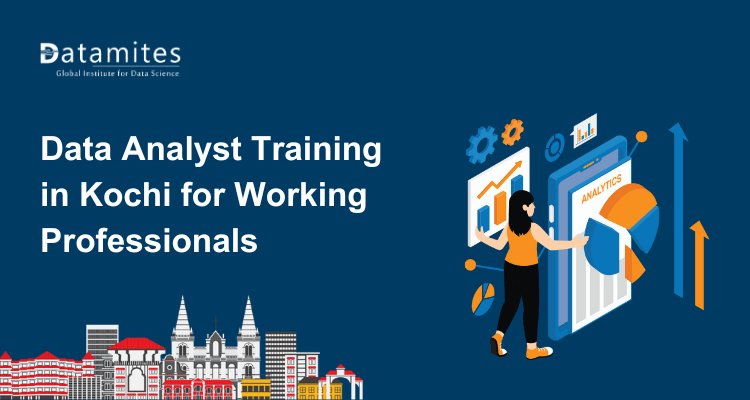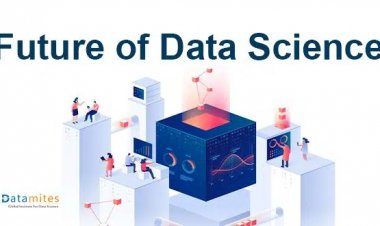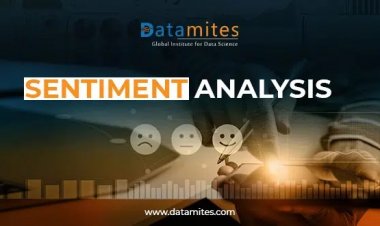Data Analytics for the E-commerce Sector

Data Analytics is a science and technology branch that highly deals with informational data. Data analytics consumes raw data to process data visualization, reporting tools, data mining programs, etc. The concept of data analytics encompasses many diverse data analysis and improve the overall efficiency of a business flow. Data analytics helps majorly in eCommerce company and provide them with meaningful insights and refined strategies to process selling business. According to the PowerSync report, Data analytics understand eCommerce business and achieves deeper goals through data analysis.
Data analytics in eCommerce is booming to affect customer behavior and put an impact on increased sales. The global eCommerce industry is expected to grow by 5 trillion by the year 2025 and it is estimated through Spice work report that Amazon recently sold 300 Million items worldwide on Prime day.
Introduction to Data Analytics in E-commerce:
Data Analytics in eCommerce is highly used to ensure the business stocks, risk predictions, and optimized strategies to target the audience in a greater aspect. With useful data extraction, it expands the business revenue in the e-commerce industry. Data analytics helps E-Commerce businesses to ensure their market campaigns, improved decision-making, enriched marketing programs, etc. Data analytics impacts eCommerce industries by accumulating data from all major areas and easily comprehending online shopping trends.
In the digital and technological world, data analytics is helpful to transform eCommerce companies to bring growth and revenue from online business. According to the Times of India report, data analytics helps analyze raw data and includes conversion of product visibility. With the help of data, eCommerce brands accelerate their growth in the online business market.
Refer this article: Data Analytics in Logistics
What is the role of Data analytics in E-commerce industries?
With the evolving technologies and expanded market growth, eCommerce has made its space and gained customer trust which enhanced its marketing value. Let’s discuss the role of data analytics in eCommerce industries:
1. Improvement in user experience– For customers, the product is everything and they prefer quality over quantity. With the developed eCommerce industries, it tries to fulfill the demand of customers by using data analytics tools that highly track the uncleared design and evaluate it to user satisfaction. Data analytics improves the layout of e-commerce industries by bringing different strategies and metrics.
2. Customized Offers- The use of data analytics in eCommerce industries tries to identify the customer’s needs and values to organize the buying patterns. Data analytics uses business intelligence to curate target audiences and customer satisfaction to help eCommerce industries in tremendous ways. With the help of data analytics, buying products are targeted and enhanced in customers’ minds to organize the e-commerce industries.
3. Provide maintained supply chain management- Data analytics plays a vital role in supply chain management. It streamlines the demand in eCommerce industries and provides defined parameters for demographics, geographies, festivals, etc. Data analytics helps in forecasting demands for products and effectively managing the demand of customers. Effective supply chain management tries to coordinate with eCommerce industries to provide an effective plan in the marketing system.
4. Enhanced customer engagement- Data analytics uses analytics tools to engage with customers in e-commerce industries. With the use of data analytics, it understands the behavior of customer choice and automatically shows them their desired products on the list. Data analytics uses the data method to personalize the buying experience of customers to predict their specific product needs. A predictive analytics tool is used to enhance customer engagement more significantly.
5. Price Optimization- As per the Accenture report, a brief article is shared regarding price optimization that uses data analytics to deal with better pricing. Data analytics improves pricing development and promotions to seek advanced offers for eCommerce industries. It helps you understand customers’ interests and needs which estimates its final pricing. With the help of data analytics, it extracts data that optimizes prices according to user needs.
Read this article: Data Analytics in Retail Industries
Benefits of Data Analytics in Ecommerce Industries
- Better customer service and experience- Data analytics assists vendors to understand customer needs. With the help of data analytics, it simplifies customer needs and supports their purchasing decisions. Data analysis majorly helps to extract data from an online source that enables better customer service and experience.
- Secure online payments- Data analytics processes informational data follow-up safe and secure payment methods. As data analytics tools can detect fraud, they help to suspect money transaction and tries to safeguard online transaction by using data analytics technology.
- Improved mobile commerce– Mobile commerce is interlinked with eCommerce and it engages customers to understand their products better. With the enhanced developed mobile apps, the future of e-Commerce is accelerating its demand in the business market. Data analytics keeps a record of the data to ease customer needs.
- Personalization- Data analytics improves the eCommerce industries by supporting the needs and satisfaction of customers. With the help of data analytics tools, it analyzes eCommerce trends and improves business sales. The work of data analytics is to provide discounts, show familiar products, give the best product design, etc to gain profit from eCommerce industries.
Also refer this article: Understanding the Role that Data Analytics plays in Manufacturing
Future of Data Analytics in Ecommerce Industries
The future of Data analytics in eCommerce industries highly depends on fast data processing that allows the business to grow its revenue. The eCommerce industry has emerged in recent years and grown to overhaul online marketing platforms. According to the InsideBIGDATA report, Amazon’s eCommerce revenue has reached 830,000 billion in the market and applied a strategic approach to understanding brands and product value. Data analytics has the power to drive data and increase the efficiency needs of eCommerce industries.
According to Market Research, the e-commerce industry has implemented vastly and witnessed an annual growth of 18.40% to reach USD 32,792.594 million by the year 2026. There are interesting opportunities to grab a job role as a data analyst in the eCommerce industry which provides a salary between Rs 1.9 LPA to Rs 8.3 LPA. With the view of the Glassdoor report, the average salary of a data analyst in the eCommerce industry ranges up to Rs 6,311179 per year.
Also read this article: Applying Data Analytics to Finance
Conclusion:
The mode of shopping has transformed and with the advancement of technology, eCommerce has introduced users to continue shopping from anywhere in the world at any time. Technology has innovated the eCommerce industry and it has changed the trends of shopping and purchasing. Everyone is majorly dependent on mobile shopping and it has molded customer experience to change their needs. Data analytics has brought informational data to ensure stock availability, optimize price rates and predict risks, etc. The eCommerce industry is forecasted to reach 200 billion dollars by the year 2027 and rapidly grow online marketing systems.
DataMites is a global and professional training institute that provides training on courses like data science, machine learning, artificial intelligence, and python. All the courses of DataMites are accredited by IABAC and students get benefitted from global IABAC certification at the end of the training. The students are facilitated by lead professionals, and handed case studies, a specialized syllabus, and mock tests. Students are assisted and guided to make better career choices for themselves.
Certified Data Analyst Course
What is HR analytics?

 dmadmin
dmadmin 





